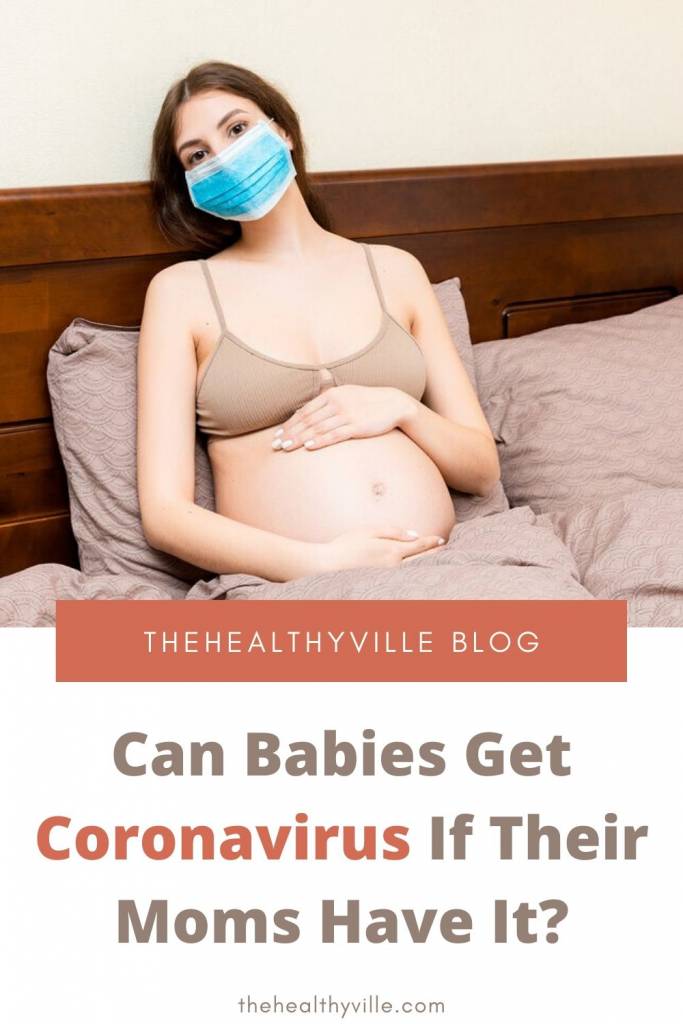Can babies get coronavirus if they mothers have it? Can they get it by default or some factors play a role? Are they immune to it?
COVID-19 do not suggest that pregnant women can transmit the coronavirus to their babies. We tell you what we know so far in this article.
The coronavirus pandemic has shown certain peculiarities that are still being investigated. One question that appeared at the start of the outbreak was whether pregnant women can transmit the coronavirus to their babies.
Previous experiences with epidemics and pandemics alerted the scientific community from the start. Many viral diseases that cause respiratory symptoms have a higher incidence of severity among the pregnant population and their fetuses.
The two previous coronavirus outbreaks, which occurred in 2002-2003 and 2012-2013, had no transmission from mother to fetus, but did complicate pregnancies. During these epidemics, infected pregnant women had a higher risk of abortion than the rest of the pregnant women.
Similarly, when the H1N1 influenza pandemic happened in 2009, pregnant women were a high-risk group. There’s introduction of quarantine for them and special measures to attend their deliveries, opting for cesarean section before the natural route.
Based on the background we named, the Chinese scientific study centers investigated whether pregnant women can transmit the coronavirus to their babies. The first results, although limited in size, indicate that there is no vertical transmission.
What is vertical transmission?
To understand whether pregnant women can transmit the coronavirus to their babies, we have to understand how mother and child communicate during pregnancy. It is this intimate communication that can transfer the virus from one body to the other.
The connection between the fetus and the mother are umbilical cord and the placenta. This anatomical and physiological unit carries nutrients from the mother’s blood to the developing child. There also circulate pathogens and substances.
There is talk of vertical transmission when a pathogen passes from the mother to the fetus through this placental unit during the development of pregnancy. The most current and widespread example we have in the world is that of the human immunodeficiency virus (HIV).
But vertical transmission is not the only form of mother-baby contagion that exists. During natural delivery, the fetus can catch infections from the mother by coming into contact with the mucosa of the reproductive system. This is known as perinatal transmission.
And once outside the mother’s body, breast milk is another route of infection, although it does not apply to all pathologies. In those where infection was confirmed, the mother is instructed not to breastfeed and to supplant her diet with milk formulas.
Vertical transmission refers to the contagion that passes from the mother to the fetus through the placental unit.
Can babies get coronavirus? – The initial studies
In Wuhan, the city where the coronavirus pandemic started, the first investigations were carried out. On pregnant women infected and admitted to the Hospital de la Unión, the researchers tested the presence of SARS-CoV-2 in them and their children.
First, the newborns of these mothers had no symptoms associated with the coronavirus. None of them had a fever, nor any coughing spells.
In any case, by protocol, infants were isolated from birth to observe the evolution. All of them underwent the COVID-19 test, obtaining negative results in 100% of the babies.
One of the newborns had a respiratory complication, and others developed rashes during hospitalization. As there are negative results of coronavirus infection, the researchers state that it is not possible to link these symptoms to SARS-CoV-2. Still, there’s a need for more extensive research to confirm or rule out.
Pregnant women and measures against coronavirus
Although studies suggest that pregnant women cannot pass the coronavirus to their babies, preventive measures are inescapable for them, too. They must respect quarantine and social isolation as others do.
It is important that pregnant women have the contact of their primary gynecologists to make remote consultations. In this way, they will avoid attending guards and health centers where they could become infected.
Despite the absence of confirmed vertical transmission, a pregnant woman can contract a severe form of coronavirus. This can complicate her pregnancy. For this reason, prevention is important in the pregnant woman. Especially if she is a woman with previous respiratory diseases, such as asthma.
Don’t forget to SHARE the answer to the question can babies get coronavirus with your friends and family on your social networks!

